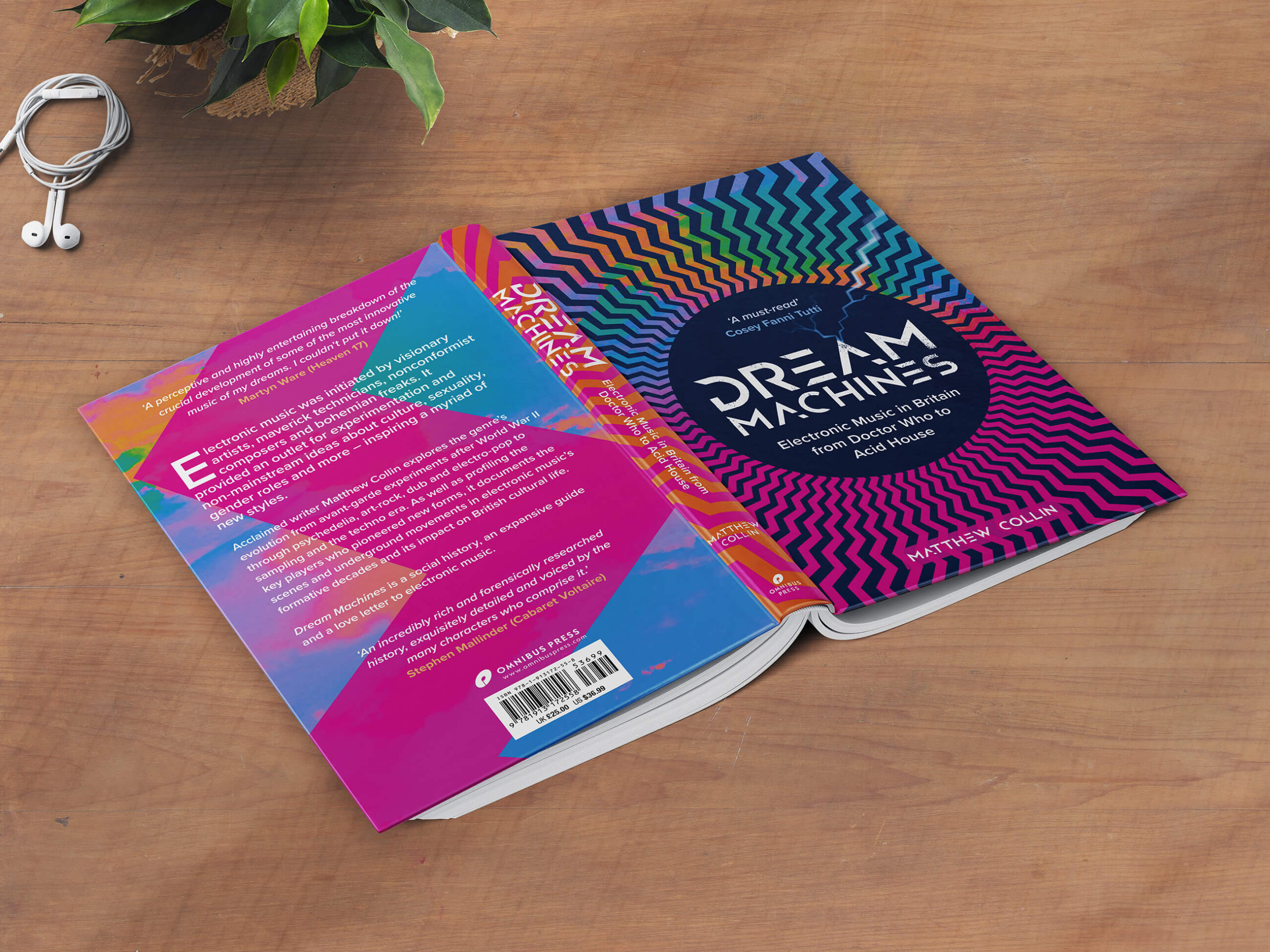Client
Omnibus Press, Author – Matthew Collin
Omnibus Press, Author – Matthew Collin
The Dream Machines cover captured the vibrant spirit of British electronic music with its bold, psychedelic design. Its striking visual identity boosted visibility in major music stores and events, contributing to the book’s strong reception and industry recognition.
My Input: Cover design
Author: Matthew Collin

The project began under the working title The Things That Dreams Are Made Of: Electronic Music in Britain from Doctor Who to Acid House. The brief called for a text-led hardback cover with a dust jacket — something vibrant, with a hint of neon and inspiration drawn from 1970s–80s electronic aesthetics such as Kraftwerk, Soft Cell, and Bruce Nauman’s neon works.
The new brief called for something bold, graphic, and energetic — reminiscent of Op Art album covers, yet timeless and not tied to a specific decade. The author requested an abstract, almost unidentifiable figure to echo his earlier book Altered State, but ultimately the final design evolved without one.
I developed a dynamic Op Art–inspired composition featuring a multicoloured, trippy sky with radiating lines converging on a central circle — suggesting a sun, or a pupil. To add energy and break symmetry, I introduced a small spark extending from the title towards the edge of the cover. The spine contrasted with a bright geometric circuitry pattern in orange and pink, creating a bold visual presence on the shelf.
The final cover went to print in early February 2024. The author was thrilled with the result, and the book launched successfully across the UK and Europe. Dream Machines was featured in Classic Pop Magazine as one of the Top 4 Music Books of 2024, and prominently displayed at Rough Trade East, Phonica Records (Soho), and the London Book Fair’s Omnibus stand — where the design was extended across matching posters and the publisher’s catalogue.
This project taught me the value of flexibility and clear communication. I adapted quickly to a complete change in direction and delivered a successful new cover design within just two days. In hindsight, I would begin future projects by sharing a moodboard first — a step I now make standard practice to ensure alignment and clarity from the outset.